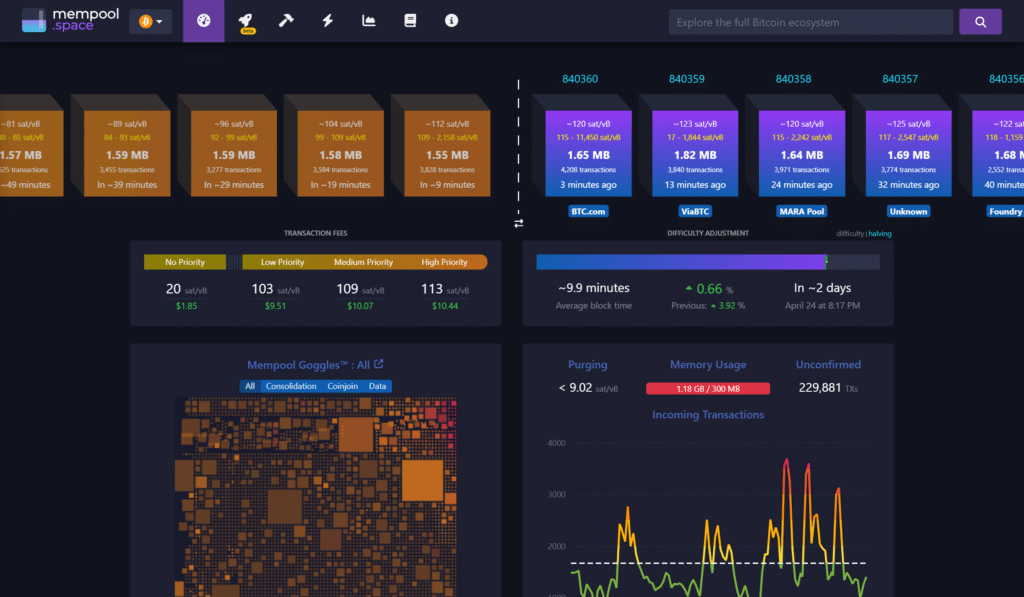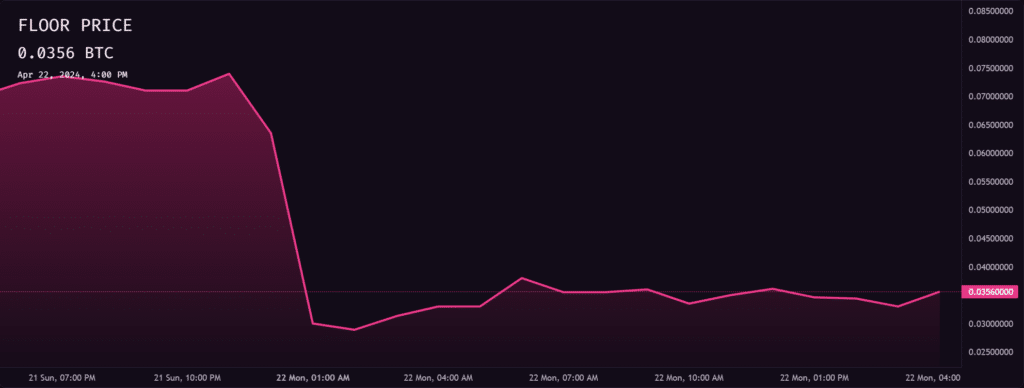ARTICLE AD
The cost of sending transactions on Bitcoin declined nearly 10 times after an initial spike following the BTC halving last week.
Days after the Bitcoin (BTC) halving, on-chain analytics provider Mempool.space reported BTC gas fees of around $9.51 for low-priority transactions and $10.07 for medium-priority actions on crypto’s largest decentralized network.
High-priority transactions cost as much as $10.44 per data seen at press time. The figures represented a massive drop compared to fees after last week’s halving. At the time, participants had to pay more than $146 for medium-priority transactions and over $170 for high-priority sends.
According to CoinMarketCap, the price of BTC was relatively unchanged after the asset’s much-anticipated code change designed by Satoshi Nakamoto to bolster scarcity and kneecap token inflation. In the past seven days, BTC gained around 2.4% to trade at around $66,000.
 BTC transaction fee data | Source: Mempool.space
BTC transaction fee data | Source: Mempool.space
Bitcoin Runes meet lackluster post-halving results
A primary concern during the BTC pre-halving was reduced revenue for miners due to block rewards being cut by 50%. Casey Rodarmor’s Runes protocol was touted as a solution and was slated to launch simultaneously with the halving to bootstrap on-chain activity.
Rodarmor’s Runes enables users to create UTXO-based fungible assets on BTC’s blockchain, promising another avenue to kickstart decentralized finance (defi) on the world’s biggest blockchain.
Bitcoin Runes is said to improve on the BRC-2O token standard designed by the pseudonymous developer Domo. Domo’s idea was an offshoot of the Ordinal protocol released by Rodarmor.
Days after the halving, the Runestone NFT collection has nearly 50% of its floor price value. Per MagicEden, the average cost of a so-called Runestole fell from 0.073 BTC to 0.035 as of writing, signaling reduced interest in the concept after the initial hype.
 Bitcoin Runes floor price | Source: MagicEden
Bitcoin Runes floor price | Source: MagicEden

 7 months ago
36
7 months ago
36 

